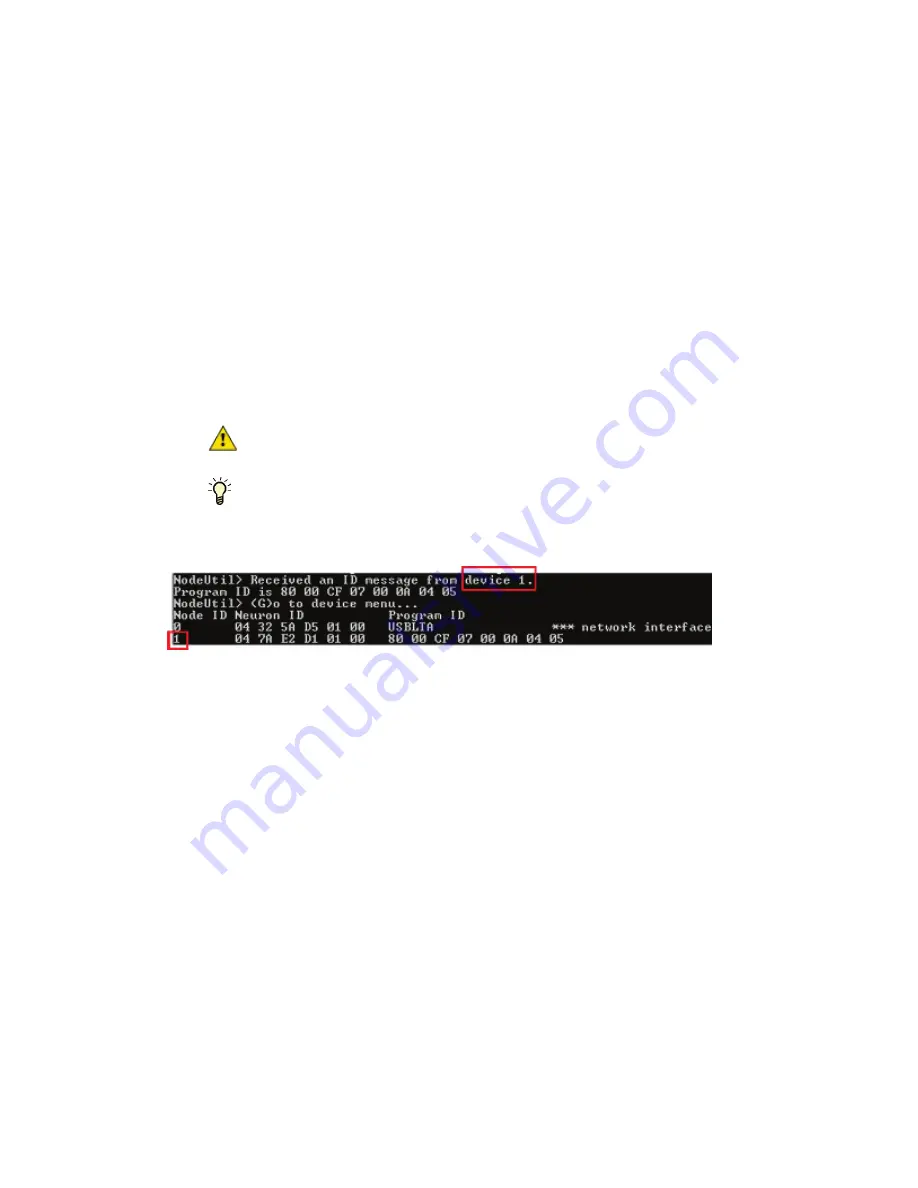
Appendix B - Obtain network, device, and network variable information
LonWorks Integration Guide
CARRIER CORPORATION ©2018
i-Vu® Link and Open Link
All rights reserved
23
To obtain the LonWorks device's .log file and .xif file:
23.
Select
Start
>
All Programs
>
Accessories
>
Command Prompt
.
24.
Type
cd "<path>"
, replacing
<path>
with the path where you unzipped NodeUtil (step 8 above),
then press Enter.
EXAMPLE:
cd "c:\Lon stuff"
25.
Type
nodeutil -dlon<number>
, replacing
<number>
with the number you wrote down in step 7
above, then press Enter.
EXAMPLE:
nodeutil -dLON1
26.
Type
>
.
27.
Type a name for the file that NodeUtil will create with the LonWorks device's network variable information.
EXAMPLE:
vav_controller.log
28.
Press Enter to create the file.
29.
Push, then quickly release the service pin on the LonWorks device you want to get information from. The
device number is displayed in the window.
CAUTION!
Holding the service pin for 3 seconds or longer can delete memory from some third-party
devices.
TIP
For some VAV devices, the connected sensor's override button may also function as a service pin.
30.
Type
G
to go to the device menu.
31.
Type the device number, then click Enter.
32.
Type
D
, then press Enter for [all] domain tables.
33.
Type
N
, then press Enter for [all] network variable configuration tables.
34.
Type
X
, then wait for NodeUtil to request a file name.
35.
Type a name for the .xif file that NodeUtil will create containing the device and network information. Omit
the file extension; NodeUtil will automatically add the .xif extension.
NOTE
If you do not specify a path, the file will be saved in the same folder as the NodeUtil.exe file.
36.
Press Enter to create the .xif file.
37.
Type
E
twice to exit the device menu.
38.
Close the Command Prompt window.
Close your connection
39.
In the SLTA Link Manager, select
Link
>
Disconnect Now
, then close the window.




















